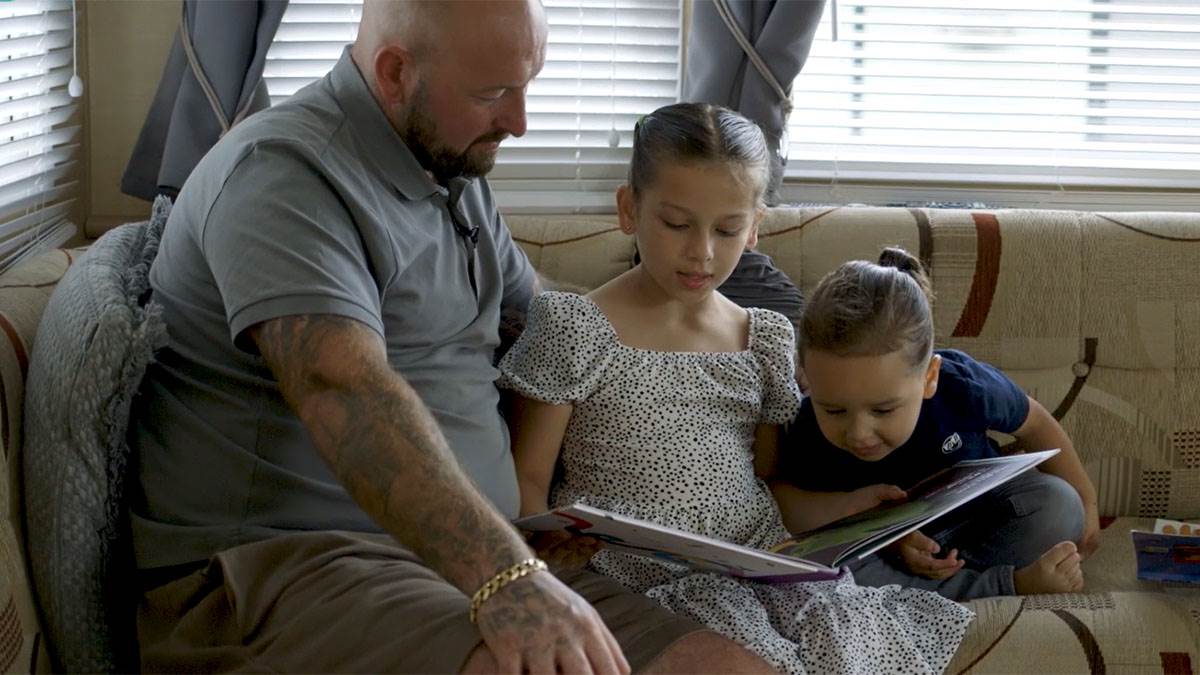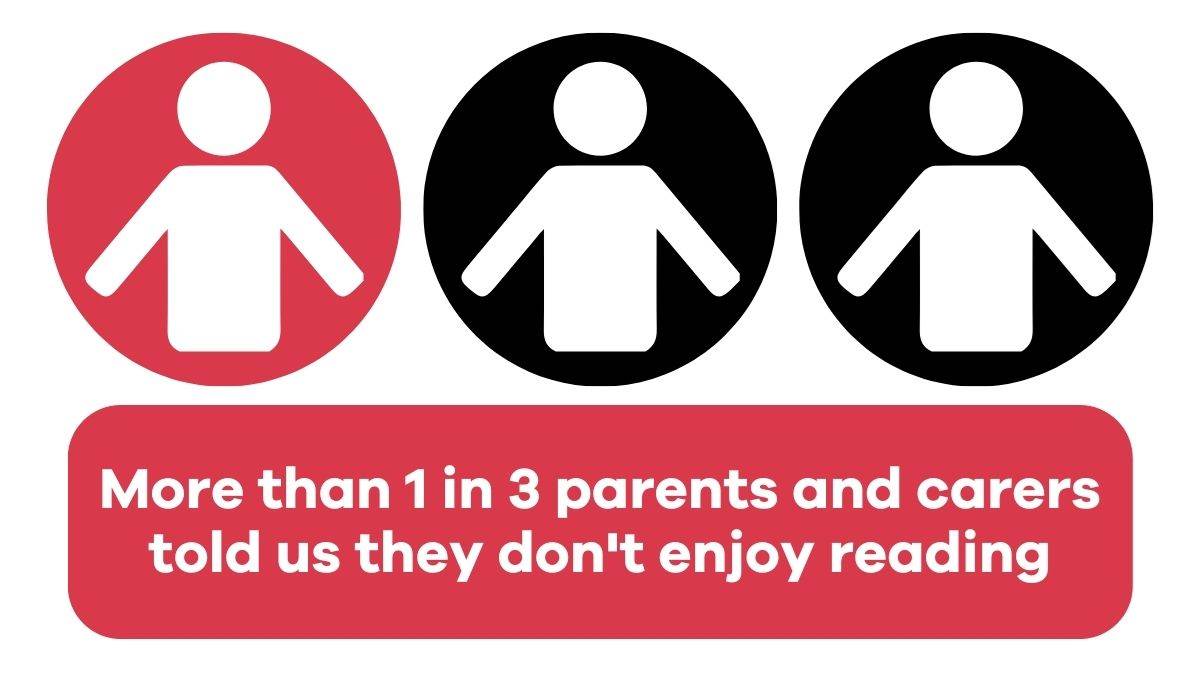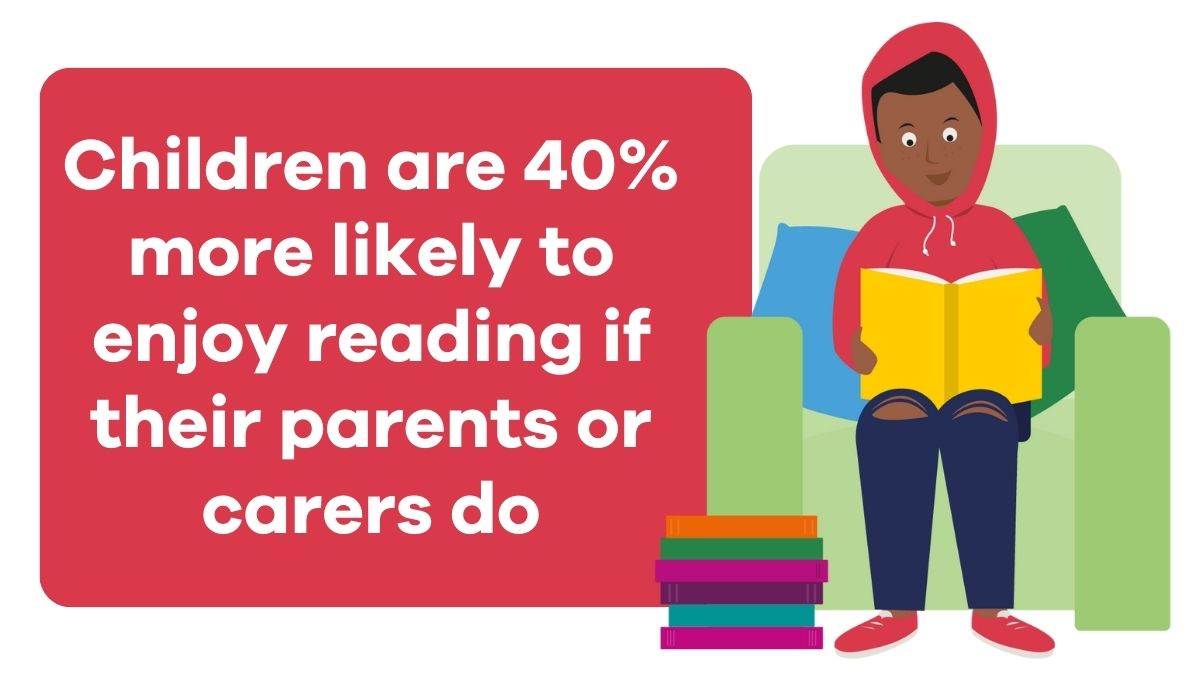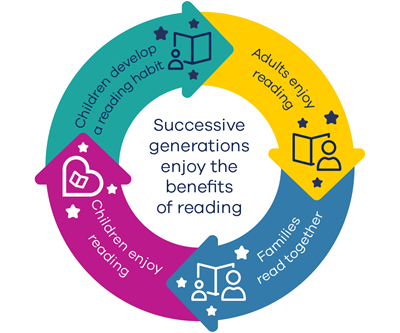BookTrust research: Children are 40% more likely to enjoy reading if their parents or carers do
Published on: 04 March 2024 Author: Ruthann Hughes
How does an adult's enjoyment of reading influence their child?
Ruthann Hughes, BookTrust's Director of Research and Impact, reflects on how cycles of reading behaviours can repeat themselves in future generations, drawing on BookTrust's 'Reading in the Early Years: supporting generational cycles of readers' research.

Over the past two years, BookTrust has conducted in-depth research with more than 2,000 parents and carers in low-income households.
We wanted to find out more about the realities of these families' reading habits and behaviours so that we could shape the support and programmes available to them from BookTrust by taking an evidence-led approach.
As the UK's largest reading charity, BookTrust has a particular focus on targeted support to families from low-income and vulnerable backgrounds. We know these children stand to benefit the most from reading regularly and reading by choice.
Over the last year, we have released three research briefings on reading in the early years. Our latest piece - 'Reading in the Early Years: supporting generational cycles of readers' - has struck a particular chord with primary school teachers, who work with children at a time in their life when their preferences, passions and habits are forming rapidly.
Understanding the context of children's home learning experiences and influences can really help to support schools' work with children and families in their communities - so below, we share some of the key findings.
What the research shows
This research reveals the powerful influence of parental reading habits on children's love for reading. It shows a stark contrast between children whose parents or carers enjoy reading and those who don't.
The findings also draw attention to the role of enjoyable reading experiences - not just for children, but also for grown-ups at home who share books and stories with them - in creating the next generation of readers and storytellers.

More than 1 in 3 parents and carers told us they don't enjoy reading.
Our research shows there's a need to support parents and carers with young children to feel positive about reading as a family. 35% of those surveyed by BookTrust said they do not like reading.
We have learnt from our work with families that some parents and carers lack confidence in reading and may not have experienced being read to as a child themselves, meaning they may need extra help to get reading with their children.
A grown-up's own enjoyment of reading can impact their capacity for emotional warmth, excitement and responsiveness when they're reading with children. Their enthusiasm fuels a child's own enthusiasm. It inspires that child's motivation to read, and creates a positive association with books and reading.

Children are 40% more likely to enjoy reading if their parents or carers do.
The research shows a strong correlation between the reading habits of children aged 0-7 and their parents and carers. 76% of children with parents and carers who themselves like reading enjoy reading, compared with 54% of children whose parents and carers do not.
If parents or carers enjoy reading, children are 25% more likely to be read to every day – and 30% more likely to be regularly encouraged to read.

According to BookTrust's research, children aged 4-7 years-old are more likely to experience shared reading activities – such as library rhyme times and bedtime stories - when their parents or carers enjoy reading. They are also more likely to have access to books – such as through library membership – and to be regularly encouraged by their parents or carers to read.
These positive shared reading activities lay the foundations for the same pattern of advantage to repeat itself in a family's next generational cycle.
Our response
At BookTrust, we recognise how parental and child enjoyment of reading are crucial factors in helping children grow into readers. We also know that children's enjoyment of reading is in overall decline and that interventions that support parents to access enjoyment through shared reading play an important role in addressing this.
This is why we're working hard with our partners – including teachers – to get and keep families reading together from the earliest moments in a child's life, so the next generation of children experience the benefits that reading for pleasure brings, both in their development in childhood as well as for their future life chances.
This research makes the case for increasing support for parents and others to enjoy early shared reading moments with their children – and for BookTrust interventions that support families to feel fun, enjoyment and to create positive memories of reading together throughout childhood.
- Here's a teacher's response and reflections on BookTrust's research on supporting generational cycles of readers
- Check out BookTrust's resources for primary school teachers to support children's engagement with reading and at home
- Discover more of BookTrust's early years research briefings
- Share our video below about the joys of reading together with your school community





